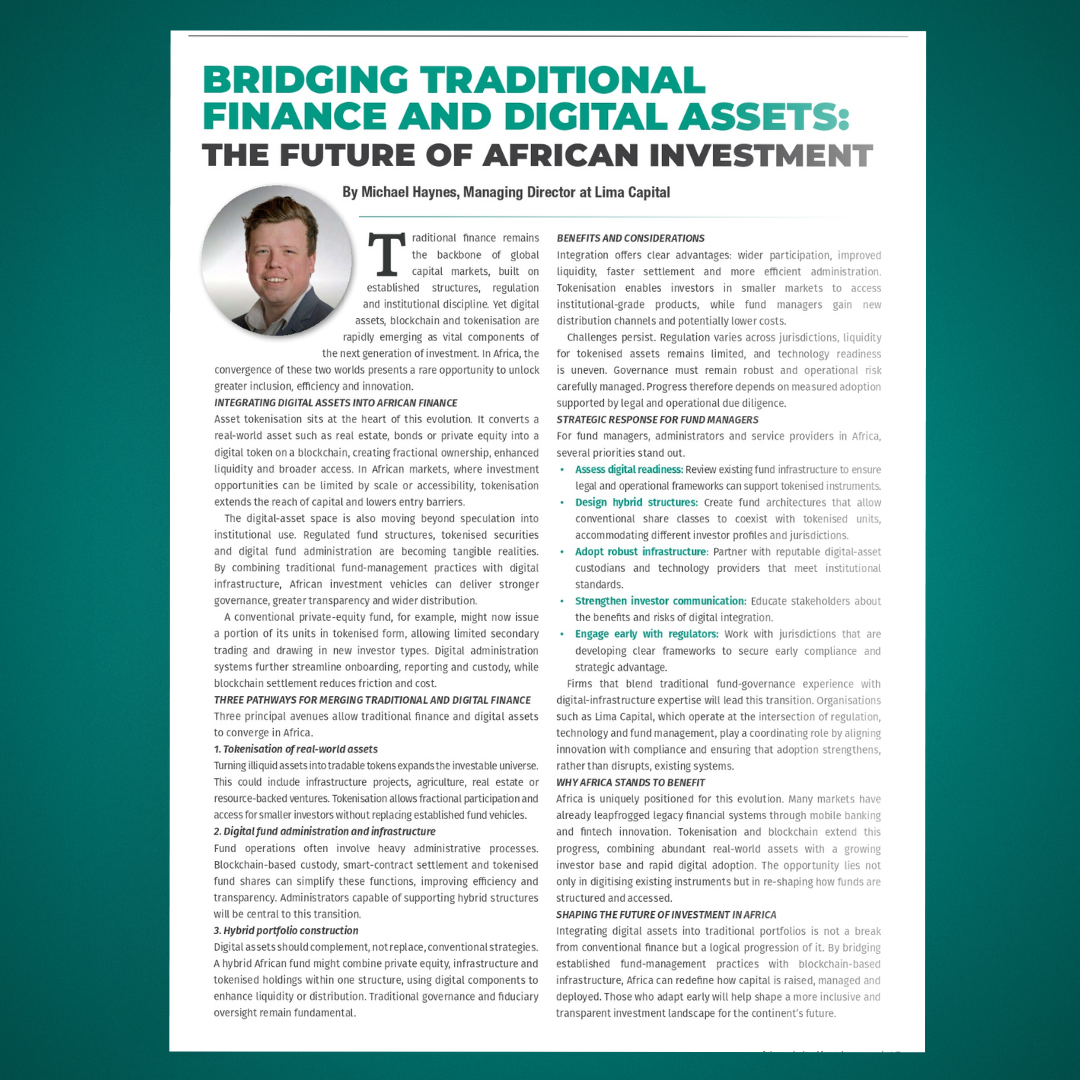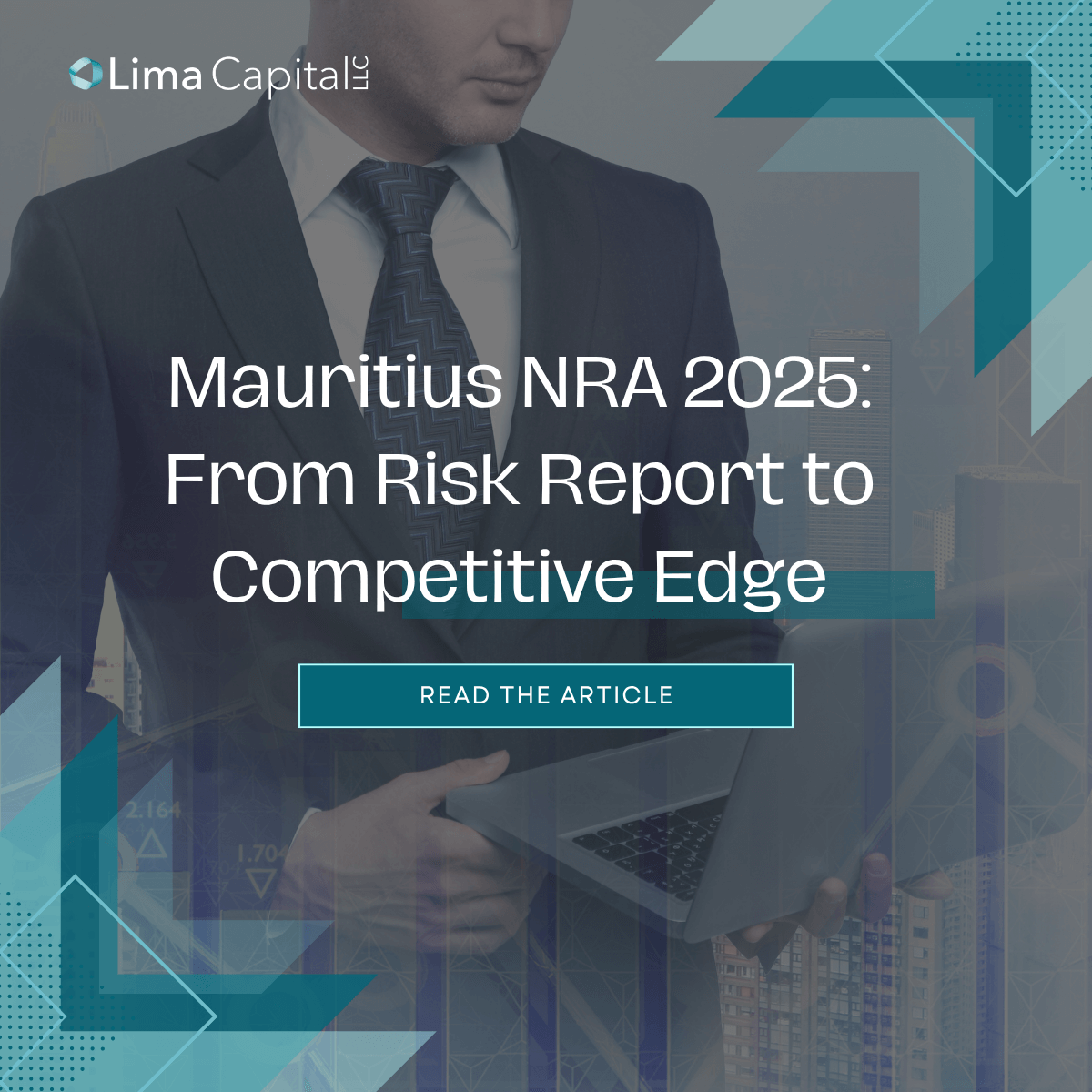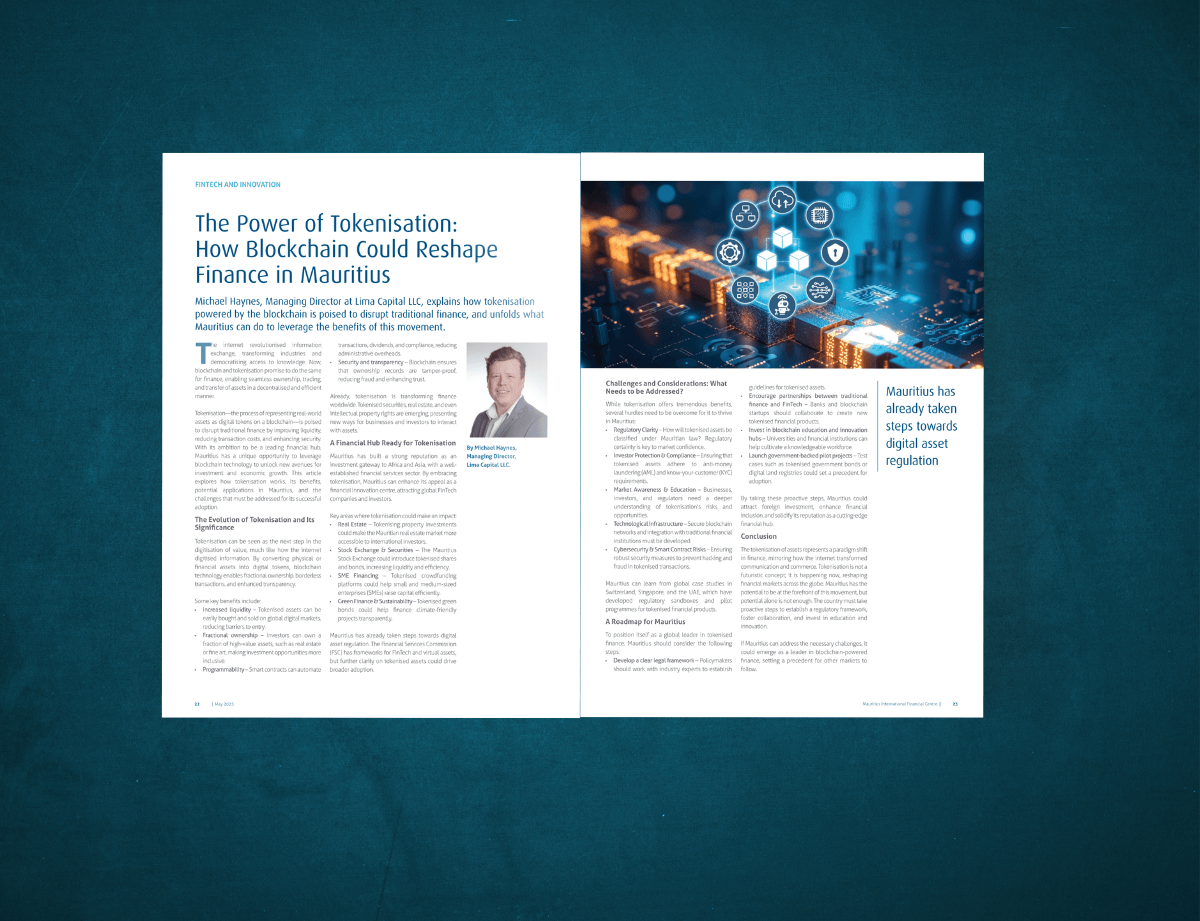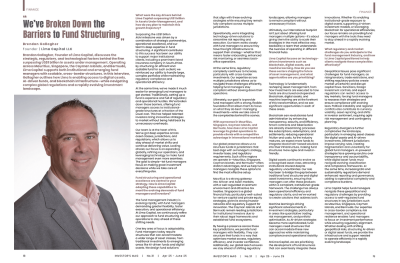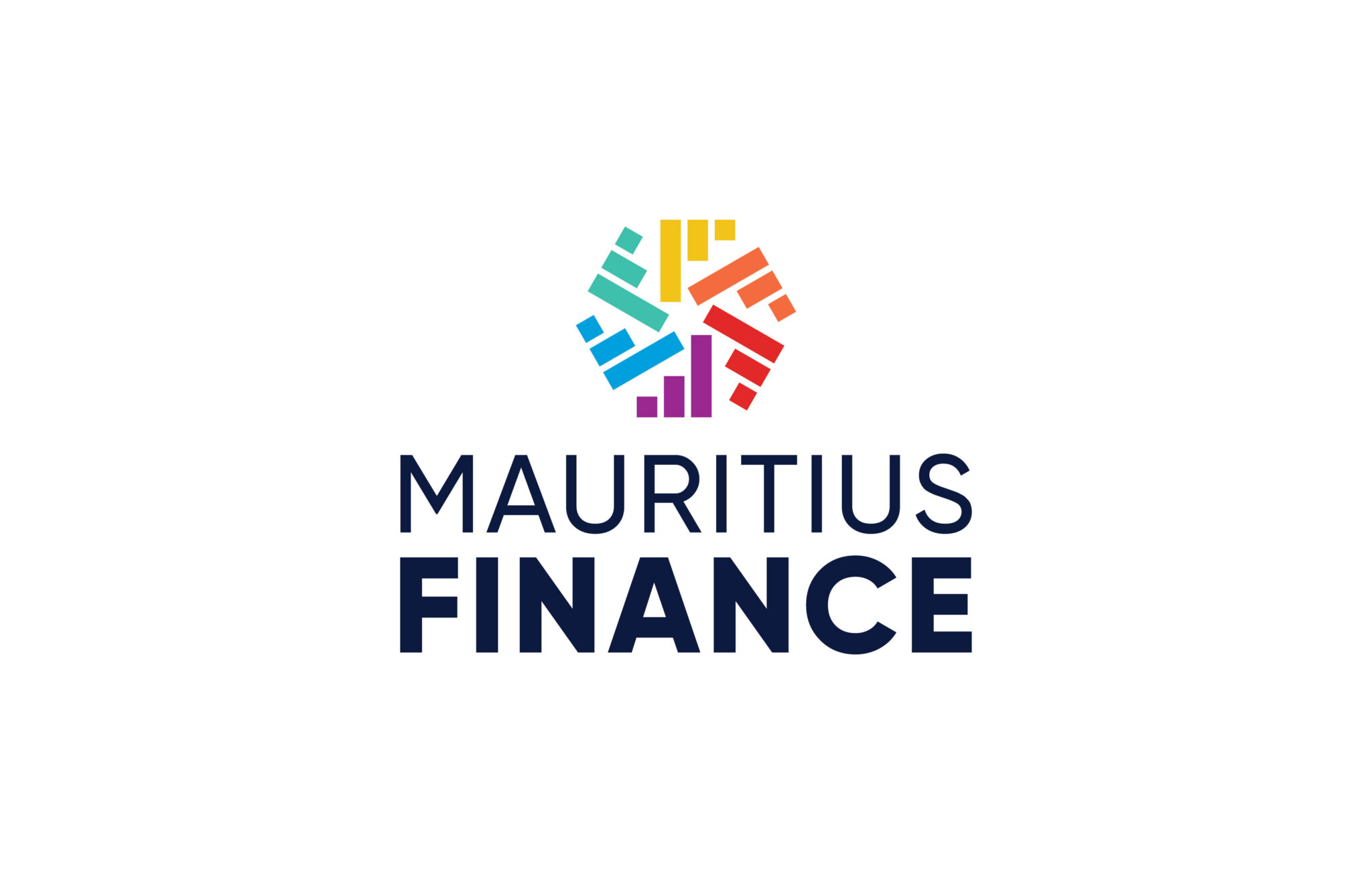Launching and scaling a mutual fund is a rewarding yet complex journey. While many fund managers excel at crafting investment strategies, the road to building a successful fund often involves navigating a maze of decisions, from choosing the right jurisdiction to managing compliance and operational costs. The truth is, what separates thriving funds from those that struggle isn’t just performance—it’s the ability to anticipate and solve the challenges no one talks about.
The fund management landscape is evolving rapidly, shaped by new technologies, regulatory shifts, and changing investor expectations. In this guide, we go beyond the basics to tackle the tough questions aspiring fund managers may not yet have considered. From selecting the perfect fund structure to attracting anchor investors, and leveraging cutting-edge technologies, we provide actionable insights and expert advice tailored to the realities of 2025. Whether you’re taking your first steps or scaling an established strategy, Lima Capital is here to help you launch and grow with confidence.
What Most Fund Managers Overlook When Launching a Mutual Fund
Starting a mutual fund involves more than just a solid investment strategy. The less obvious challenges are often what trip up new managers. For example, many fund managers don’t give enough attention to operational efficiency—ensuring smooth day-to-day functions like trade reconciliation and reporting can make or break investor confidence. Another common blind spot is long-term scalability. Many funds are set up for their initial size but falter when managing significantly larger assets or higher investor volumes.
Finally, it’s essential to think about your fund’s unique selling proposition (USP). In a crowded market, what will set you apart? Whether it’s a niche strategy or exceptional transparency, your USP must resonate with your target investors.
How to Choose the Right Fund Structure for Your Strategy
Choosing the right fund structure is one of the first—and most critical—decisions you’ll make. It determines how your fund operates, who can invest, and how easily you can scale.
Key Structures to Consider
- Open-Ended Funds: Ideal for managers focused on liquidity. Investors can redeem shares at any time, but you’ll need to maintain cash reserves, which can impact your returns.
- Closed-Ended Funds: Better suited for illiquid assets like real estate or private equity. These funds offer stability but might limit your investor pool.
- Master-Feeder Structures: Perfect for funds targeting international investors. They allow for pooled investment from different jurisdictions while maximising tax efficiency.
By aligning your structure with your investment strategy and target investor base, you’ll ensure a strong foundation for growth.
Jurisdiction Matters: Where Should You Set Up Your Fund in 2025?
Not all fund domiciles are created equal. As a fund manager, you need to think beyond tax efficiency—consider investor expectations, regulatory burdens, and service provider availability.
For example,Mauritius is a strong choice for funds targeting African or emerging markets, thanks to its network of double taxation treaties. Meanwhile, Singapore appeals to managers who want a global financial hub with the added flexibility of the Variable Capital Company (VCC) framework. For hedge funds or alternative assets, the Cayman Islands remain a favourite due to their reputation for investor familiarity and streamlined regulations.
When choosing a jurisdiction, think about where your investors are based, the type of assets you’re managing, and the level of regulatory oversight you’re comfortable with.
How to Attract Anchor Investors for Your Mutual Fund
Anchor investors are the backbone of any successful fund, providing the initial momentum and credibility needed to attract others. So, how do you secure them?
Start with your network. Often, your first major investor is someone who knows you or your track record personally. From there, be ready to customise your offering—anchor investors often seek preferential terms or co-investment opportunities. Finally, ensure you’re showcasing professionalism and credibility. A partnership with a trusted fund service provider like Lima Capital signals to investors that you have the operational and regulatory side of things covered.
The Hidden Costs of Fund Management (and How to Minimise Them)
Managing a mutual fund is expensive, and some of the biggest costs aren’t immediately obvious. Compliance and regulatory fees, for instance, can quickly add up, especially if your fund operates across multiple jurisdictions. Staying on top of filings and regulations takes time, resources, and money.
Audit and reporting costs are another big one. Investors want detailed, accurate reports, but these don’t come cheap—especially as your fund grows and takes on more complexity. Working with experienced fund administrators can streamline the audit process and keep these costs under control.
Custodial fees can also sneak up on you, especially if you’re managing illiquid assets like real estate or private equity. Negotiating tiered fees with your custodian from the start ensures your costs don’t spike as your fund scales. On top of this, operational inefficiencies—like manually processing investor subscriptions or trade reconciliations—can waste both time and money.
Finally, there’s marketing and distribution. Attracting investors isn’t just about great performance—it takes effort (and budget) to build your brand and communicate effectively.
The key to managing these hidden costs is planning ahead: automate wherever you can, negotiate smartly with your service providers, and build systems that can grow with your fund. It’s all about spending wisely so you can focus on delivering strong returns for your investors.
Using AI, Data, and Blockchain: The Future of Fund Operations
Technology isn’t just reshaping how funds operate—it’s helping fund managers solve real challenges, attract investors, and run funds more efficiently. Let’s look at how AI, blockchain, and data are being applied practically in fund management and why they matter to you.
AI: Predict, Optimise, and Adapt
AI has moved beyond being a buzzword. Today, it’s actively used by leading asset managers to predict market trends, optimise portfolios, and automate complex tasks. For example, platforms like BlackRock’s Aladdin help managers identify portfolio risks in real-time by scanning millions of market signals.
For smaller or emerging funds, AI tools like Sentifi can provide predictive insights into market sentiment. For instance, it can monitor global news and social media to flag early signs of market volatility, allowing you to adjust your strategy before the impact is felt.
Blockchain: Transparency and Efficiency
Blockchain technology is gaining traction in fund management, not just for crypto funds but for traditional funds too. One practical application is tokenisation—turning fund shares into digital tokens. This isn’t theoretical. Funds like the Arca US Treasury Fund have already tokenised their offerings, enabling fractional ownership and near-instant trades.
Tokenised funds are particularly appealing for funds targeting tech-savvy investors or those who prefer fractional access. For you as a fund manager, blockchain simplifies investor record-keeping and speeds up transactions, cutting out intermediaries and reducing fees.
Smart contracts add another layer of efficiency by automating processes like dividend distribution or compliance checks. Imagine dividends being paid to investors automatically, without requiring manual calculations or delays.
Real-Time Data: Making Better Decisions Faster
Fund management has always relied on data, but now the speed and breadth of that data are game-changing. Platforms like Kensho offer instant analysis of global events and market trends, giving you a competitive edge.
For example, alternative data—such as foot traffic at retail stores or satellite images of crop yields—can provide unique insights into industries you’re investing in. If your fund is heavily focused on consumer goods, tracking real-world consumer behaviour can help you adjust holdings faster than your competitors.
How to Scale Your Fund Without Compromising Compliance
Every successful fund manager knows that growth and compliance must go hand in hand. Scaling too quickly without a solid compliance framework can lead to costly regulatory breaches and reputational damage.
One lesson from established funds is to build compliance into your processes from the beginning. This includes using tools that monitor changes in regulations and working with legal advisors who understand the nuances of your fund’s jurisdiction. Additionally, as your fund grows, so will the complexity of your operations—make sure your compliance processes are scalable and not reliant on manual effort.
The Launch Playbook: Step-by-Step Guidance for Fund Managers
Ready to launch? Here’s your step-by-step guide:
- Craft Your Strategy: Define your unique value proposition, whether it’s a niche market focus or a differentiated investment style.
- Select Your Jurisdiction: Consider tax efficiency, investor preferences, and regulatory complexity.
- Build Your Team: Hire for critical roles like portfolio management, compliance, and operations.
- Secure Anchor Investors: Leverage your network and showcase your credibility to attract your first big commitments.
- Partner with Experts: Work with service providers like Lima Capital to streamline operations, compliance, and reporting.
- Leverage Technology: Integrate tools like AI for risk analysis and blockchain for transparency to future-proof your fund.
Launching a mutual fund may seem daunting, but with the right steps and partners, you can set yourself up for success. Don’t navigate the complexities of launching your fund alone. Get in touch with Lima Capital and discover how we can streamline your journey to success.

